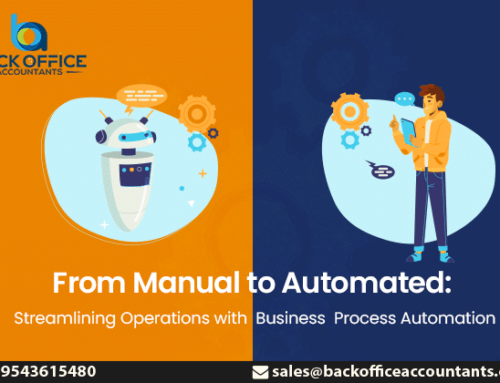In the corporate world, businesses recognize accounting and bookkeeping as the foremost pillars upon which they build their framework. To make informed decisions and gain a competitive edge, businesses must maintain accurate accounts and monitor cash flow statement.
Accounts receivable refers to the outstanding invoices generated by the organization for the services offered. Higher account receivables suggest that customers haven’t paid for the services they’ve received yet. While it may indicate sales growth, it can also negatively affect cash flow.
Cash Flow:
Cash flow is a key financial indicator that assesses an organization’s ability to generate and manage resources over time. It provides insights into cash inflows and outflows, especially from financing activities. Both accounts payable and accounts receivable on cash flow directly affect your business’s financial stability.
Cash Flow Statement:
A cash flow statement (CFS) is a financial report that talks about cash flow (inflow and outflow) and cash equivalents (CCE). The cash flow statement (CFS) allows us to measure the organization’s capacity to cover operational expenses and settle debt obligations. The CFS also acts as a metric to evaluate an organization’s ability to manage cash resources.
Effective management of Accounts Receivable (AR) is the key to maintaining the financial health of the organization. Cash flow statements show significant implications on accounts receivable.
Impact of Account Receivables (AR) on Cash Flow Statements (CFS)
As said earlier, Account Receivables is the measure of services that are not yet collected as cash. In this article, let us see how accounts receivables affect the cash flow statements of an organization.
When you extend credit to customers, accounts receivables (AR) become a key source of cash inflows in your cash flow.
Here’s another worst scenario of extending your accounts receivables. Unpaid account receivables and late-paying customers will create cash shortages in your business, thereby directly impacting the cash flow. In addition to this, unpaid account receivables will result in a situation where you’ll have no cash to cover other cash outflow obligations. It indicates that your money is tied up and unavailable for clearing other bills or loans.
Also, slow-paying customers will reduce your opportunities to expand your business since the cash inflow will be affected. You can invest in other new opportunities only if you have cash in your hand. If your company’s assets are tied up in accounts receivable, you’ll lose the opportunity to explore and expand your business. Hence, it’s crucial to understand the significance of cash on hand as a flexible asset for your company.
Do remember that it is crucial to convert your account receivables into cash since account receivables will not pay your bills but the cash does. While running a business, make sure to get rid of account receivable balances to maintain liquidity. Converting account receivables into cash regularly will minimize the risk of your company getting into bad debt expenses.
Conclusion
The benefits of converting your account receivables into cash are numerous. It will reduce the risk of bankruptcy and bad debt, give your organization more liquidity, and enable you to pivot in multiple directions.
The greater the cash flow of account receivables, the greater the security that the outstanding loans or bills can be cleared. Also, higher cash flow will widen opportunities for expanding your business. Hence, it is essential to make informed decisions while trusting your customers that they will repay their debt and offering credits to them. After all, effective accounts receivable management is the key to ensuring the financial health of the organization is taken care of.
Are you someone who’s looking for a passionate firm that offers professional and reliable accounts receivable services, we have a suggestion for you. Back office Accountants, an organization based in Punjab, offers top-notch quality services for businesses of all sizes.
This firm offers a wide range of services, right from bookkeeping and accounting, to other business services. Do make sure to visit the official website of Back office Accountants to learn more about their approach to the accounts receivable process and check if it can help your business.







